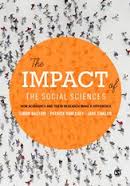This piece was originally published on LSE’s Impact of Social Science blog as “Higher Education community responds to cabinet reshuffle, but it is too soon to foretell David Willetts’ legacy” (July 15th 2014)
Last night, @timeshighered initiated a Twitter hashtag to gather users’ thoughts about how posterity might record the outgoing Universities minister’s contribution to the sector. It was fascinating to watch #WillettsLegacy develop, with initial ire that “Higher Education has never been so deep in the shit” (@dolbontboy) slowly giving way to “real admiration” (@mikegalsworthy) for a “thoughtful and respected” (@keith_herrmann) minister with “passion” and “enthusiasm” (@Suzanne_Wilson) for his brief.
For some, the legacy was “crippling debt” (@tmyoungman), “accelerated marketization” (@DrLeeJones) and a “black hole in funding” (@cmsdengl). For others, Willetts was “a visionary” (@LE_Aerospace), “brilliant” and “outstanding” (@ProfRWinston). Often mentioned was “the value of having a universities minister who understands science” (@AlanHeavens).
At the time of writing, about 30% of the #WillettsLegacy tweets were positive, 45% were negative and 25% were mixed.
The success or otherwise of Willetts’ reforms won’t be known for some time yet, of course. The 2012 funding model places graduates in hitherto unknown levels of debt. Indeed, the Institute of Fiscal Studies recently noted that where under the previous student loans system 50% of graduates would complete their repayment by the age of forty, only 5% will do so under the new system. The 2012 model may be more progressive during the period immediately after graduation, but future generations of middle-earners are likely to pay more for longer.
 Which? University Launch. Image credit: Which? Press Office (Flickr, CC BY SA)
Which? University Launch. Image credit: Which? Press Office (Flickr, CC BY SA)
If the reforms were an attempt to introduce competition to the sector, they were largely unsuccessful. Predictably, raising fees to £9k per year didn’t result in universities ruthlessly undercutting one another in the market place. What it did create was a plethora of “Cashpoint Colleges” teaching nothing much at all, at eye-watering expense to the taxpayer.
Indeed, early predictions of how costly the government’s underwriting of the new system would be proved wildly optimistic. RAB estimates have now risen from 30% to 45%, making the system more expensive than that which it replaced. Some call for the fee cap to be lifted; others suggest some kind of Graduate Tax may be a fairer option.
Though the widening participation agenda seems not to have taken a hit from the introduction of higher fees, UCAS report that applications from mature students and part-time students are down substantially since 2012. Even when young people from state schools get the grades for a top university, evidence shows that they’re less likely to apply and less likely to be offered a place than their equal-attainment peers from the independent sector.
Findings also indicate that some applicants are much more favoured by the applications process than others. Willetts supported the use of contextual data in admissions (“if they’ve come from a school that doesn’t get many good A-level grades, getting a grade at that school is even more of an achievement”), but missed key opportunities to level the playing field further.
On the other hand, Willetts did much to raise the profile of teaching in Higher Education. For all of its faults, the National Student Survey shows student satisfaction rising every year. Open access for journal articles (triggered by Willetts’ own frustrations at being charged to read scholarly publications when researching his most recent book, The Pinch: How Baby-Boomers Took Their Children’s Future, and Why They Should Give it Back) is a step in the right direction.
Indeed, in Willetts, we had a minister who was willing to engage directly and openly with academic research. At a Sutton Trust event last year, I recall Willetts taking issue with an academic report authored by John Jerrim of the Institute of Education. The debate was heated, and Willetts repudiation of the evidence wasn’t entirely convincing, but it was heartening to see a policy-maker engage directly with educational research (rather than, say, dismiss its authors as blobbish ‘enemies of promise’).
With four years’ service as the Minister of State for Universities and Science, Willetts is entitled to the odd blunder. Among his most cringe-worthy was citing feminism as the “single biggest factor” for the UK’s social mobility problem, although selling off old student loan books smacked of fiscal desperation and the proposed cuts to the Disability Student Allowance are particularly offensive.
With no student having yet graduated under the 2012 system, Willetts’ legacy can be no more than a matter of speculation. Hasty measures to open up the Higher Education sector to alternative providers may yet take their toll both on universities and on the taxpayer. Those of us who received our degrees for free may wince at the levels of debt new generations of graduates face.
However, the consensus from social media, and beyond, is that Willetts shielded the Higher Educations from the worst excesses of austerity and neoliberalism. He’s generally remembered as a minister committed to his brief and ready to engage with dissenting voices; as “one of government’s genuinely nice blokes” (@tnewtondunn).







